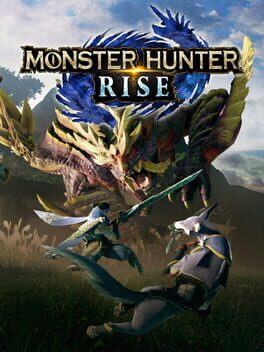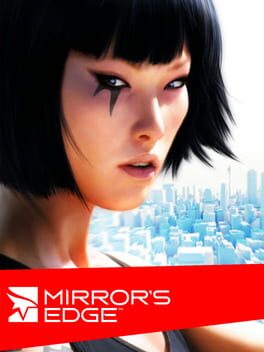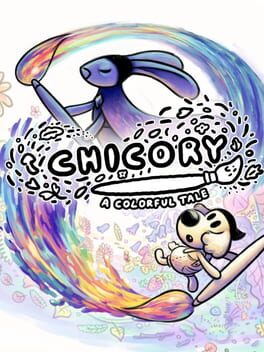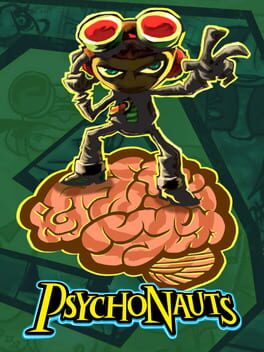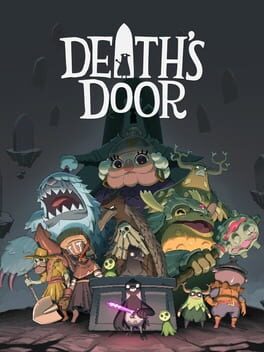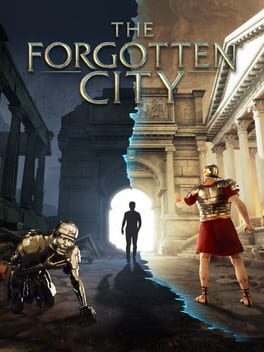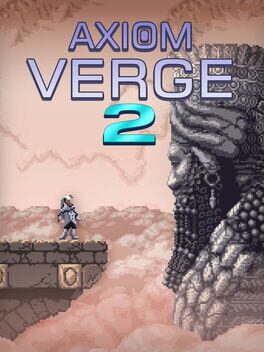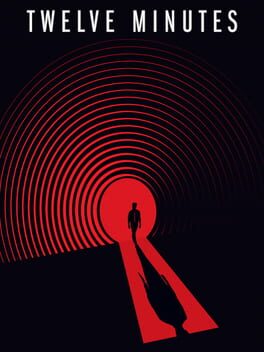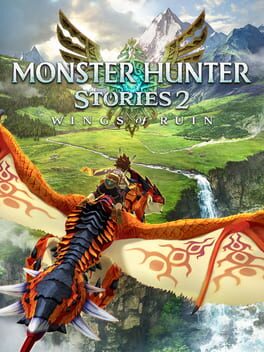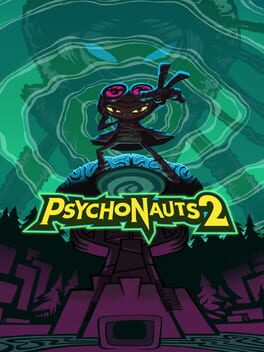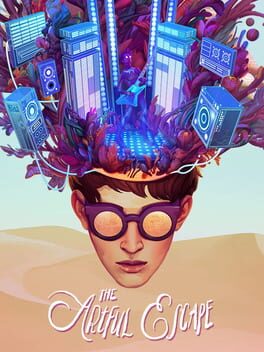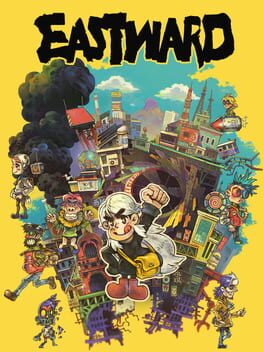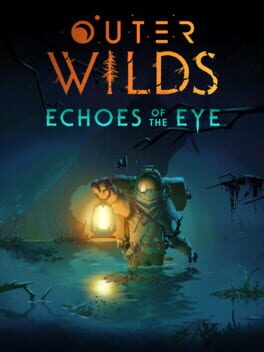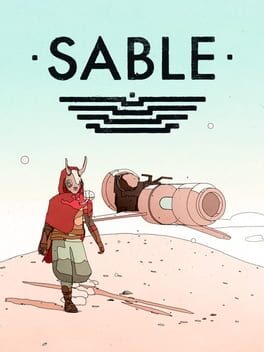2021
This is the most streamlined Monster Hunter yet and one of the best. It combines the DNA of old Monster Hunter, specifically Portable 3rd and World into an efficient, fluid and truly remarkable achievement carving a fascinating way into the future of the franchise. At about 70 hours this is by far the shortest time I have spent with a Monster Hunter game and the lack of a G/Master Rank or tempered monster equivalent to really incentivize the endgame grind is a bit disappointing and the Rampages are interesting but ultimately tedious and repetitive. Still, the variety created through Wirebugs and Switch Skills adds so many interesting layers. In Generations I quickly bounced off the excessive amount of different styles and Hunter Arts, this new system is very similar but actually integrates naturally through the design of the monsters and world around the Wirebug concept, which is important for me to accept such a drastic design iteration. I really hope they manage to supply this game with steady content to solve most of my issues, but the future seems bright for Monster Hunter. We have come a long way since the days of fan translation patches on the PSP, huh.
2008
This was one of my favorite games growing up and upon replaying it, I noticed that it probably played a big part in inspiring me to pursue game development. However, I also came to realize that it didn't age all that well for me apart from the art style, which is still absolutely impeccable. The biggest issue is the combat/the enemies, absolutely draining the flow and feeling completely antithetical to the world building, core gameplay and aesthetic.
The first person freerunning gameplay was absolutely revolutionary at the time but now, 13 years later as many games have taken the template to new directions, feels clunky and way slower than I remembered.
I will still always cherish this game for the nostalgia, vibes and aesthetic, though.
The first person freerunning gameplay was absolutely revolutionary at the time but now, 13 years later as many games have taken the template to new directions, feels clunky and way slower than I remembered.
I will still always cherish this game for the nostalgia, vibes and aesthetic, though.
This is a deeply flawed game that doesn't have the game design finesse to truly stick the landing on many of its ambitious goals. It is endlessly repetitive, clunky in its progression and inventory systems and uninspired in its quest design. This version doesn't fix these issues, although the more polished combat certainly helps.
At the end, after Ending E, I have to look back, though, and realize that these 'flaws' and repetition add unique qualities to the experience that are difficult to truly put into words. It is a vibe. It is the familiarity of knowing every corner of every area. Knowing every story beat that follows and mowing through boss fights comfortably. You are forced to linger in these spaces sometimes longer than is comfortable, burning them into your memory. Entering Facade for the first time in Replicant flooded me with nostalgia and comfort for the experience I had with the original.
Time will smooth the rough edges and leave a truly remarkable gaming experience in my memory that shines brightly through its fantastic characters and legendary score.
At the end, after Ending E, I have to look back, though, and realize that these 'flaws' and repetition add unique qualities to the experience that are difficult to truly put into words. It is a vibe. It is the familiarity of knowing every corner of every area. Knowing every story beat that follows and mowing through boss fights comfortably. You are forced to linger in these spaces sometimes longer than is comfortable, burning them into your memory. Entering Facade for the first time in Replicant flooded me with nostalgia and comfort for the experience I had with the original.
Time will smooth the rough edges and leave a truly remarkable gaming experience in my memory that shines brightly through its fantastic characters and legendary score.
When I tried the demo on Steam last year, I quickly brushed it aside as a gimmicky color-book adventure and ignored it after that. After release a solid number of remarkably high review scores convinced me to give this another shot and oh boy, did I fall in love. Chicory is essentially a 2D Zelda game without combat and a strong focus on metroidvania-style progression, puzzles and exploration. I don't like to play with mouse and keyboard for comfort reasons these days and I was afraid that a game centered around precision painting would fall flat with an analog stick and to be fair, it really isn't the most ideal input device for this mode of gameplay but it works totally fine after getting used to it - and certain optional upgrades will definitely make your life easier as you progress. This is due to the easy going nature of all aspects of the design, while there are some sections that require fast, precise inputs, you aren't punished much for failing, and pretty much every action of yours in the world is reversible.
I am not the biggest fan of the 2D Zelda games, so I can confidently say that this is probably my favorite in the genre. The characters and narrative are so full of heart, the puzzles are clever but never overwhelming and the stellar music by Lena Raine adds an incredibly rewarding layer to exploring all the different nooks in the world. The game drove me to spent extra time in it to explore every part of the map and finish even the most (seemingly) mundane side errants just to get the chance for some new character interactions, which is high praise to the charming writing and world design, that allows its characters plenty of room to breathe and surprise you in unexpected places. I really can't emphasize enough how much this game surprised me. It brought me so much joy over the last weeks and actually hit home quite hard with its themes and narrative. I can't recommend Chicory enough, it is so so good.
I am not the biggest fan of the 2D Zelda games, so I can confidently say that this is probably my favorite in the genre. The characters and narrative are so full of heart, the puzzles are clever but never overwhelming and the stellar music by Lena Raine adds an incredibly rewarding layer to exploring all the different nooks in the world. The game drove me to spent extra time in it to explore every part of the map and finish even the most (seemingly) mundane side errants just to get the chance for some new character interactions, which is high praise to the charming writing and world design, that allows its characters plenty of room to breathe and surprise you in unexpected places. I really can't emphasize enough how much this game surprised me. It brought me so much joy over the last weeks and actually hit home quite hard with its themes and narrative. I can't recommend Chicory enough, it is so so good.
2005
A delightful bag full of imagination and creativity that ultimately falls a bit short of greatness for me due to floaty controls and a weird structure that starts as a classic 3D platformer with a hub world and distinct levels but ultimately abandons all that for a semi-linear chain of levels that totally fit the dream-within-dream narrative angle and stand as great levels on their own but ultimately fail to tie it back to an accessible pacing anchor and feeling of progression. I admire the unique approach, there really is nothing like this game, but can't say I fully appreciate the execution, which makes me all the more excited for the long awaited sequel.
2021
I noticed a feeling I have when playing certain games that comes close to 'coziness' or flow. When the movement mechanics are perfectly tuned, the exploration finds the perfect balance for challenge and frequency and the game is polished to the level where you can just let yourself go completely because you are enjoying every step you take. This feeling usually leads me to spend as much time in these games as possible and tedious completionist activities flip to delicious extra juice to squeeze out of the most refreshing fruit. Well, this is certainly one of those games.
Death's Door oozes in polish and uses the third dimension to the full potential in a traditionally flat 2D genre. Style is certainly substance in this case, from fancy cinematography, beautifully layered and detailed dioramas forming a deeply intertwined and intricate level design and world to just hilariously bold title cards rivaling the ones in Control. The balancing act of humor and ernest, heartfelt storytelling works out perfectly in this bleak but intrinsically cheeky setting - you are a soul-reaping crow wielding a glowing sword arriving by bus at an office building greeted by Baul Plart after all.
Something I have to give games the highest credit for is respecting the player's time and dedication. You have an abundance of collectable items to collect and puzzles to solve but you get the option to get hints at various points that don't spoil the solution but relieve the player of needing to backtrack endlessly and should you decide to stick around after the ending and poke a bit more into the game, you will be rewarded for your time not only with a satisfying True Ending but also with great surprises and twists along the way.
Death's Door oozes in polish and uses the third dimension to the full potential in a traditionally flat 2D genre. Style is certainly substance in this case, from fancy cinematography, beautifully layered and detailed dioramas forming a deeply intertwined and intricate level design and world to just hilariously bold title cards rivaling the ones in Control. The balancing act of humor and ernest, heartfelt storytelling works out perfectly in this bleak but intrinsically cheeky setting - you are a soul-reaping crow wielding a glowing sword arriving by bus at an office building greeted by Baul Plart after all.
Something I have to give games the highest credit for is respecting the player's time and dedication. You have an abundance of collectable items to collect and puzzles to solve but you get the option to get hints at various points that don't spoil the solution but relieve the player of needing to backtrack endlessly and should you decide to stick around after the ending and poke a bit more into the game, you will be rewarded for your time not only with a satisfying True Ending but also with great surprises and twists along the way.
2021
A valiant, but ultimately messy effort. At times I was so immersed and fascinated by the world and setting that is crafted and all the systems interacting with each other only to be forced out by overall jank, repetition and systems not fully recognizing my actions. The last point is the most important one. Systemic games like this one that are built on choices, consequences and player knowledge live and die by the integrity of their simulation. What happens if the player pushes against the systems presented in the game? If the game doesn't break and even anticipated the choice a feeling unlike any other is created. The problem is, though, that you have to support an enormous number of interactions in a game where you interact with a decently sized cast of characters going about their lives in a roman city across multiple time loops. And this game unfortunately broke the illusion a few too many times for me in the end. I would still wholeheartedly recommend this game to everyone who is curious due to its low time investment, as I mentioned, this is a truly valiant effort that hits on so many points, I just wish it were a little more polished in the end. Also I was incredibly weirded out by that final ending, a bold direction certainly to put it favorably.
2021
What I will give the biggest credit in Axiom Verge 2 are the bold aesthetic and game design decisions making up the whole structure of this game. This isn't a by the books retro-style metroidvania set in a grim alien world. Where the first game was Alien, this feels more like The Thing and Dune depending on the region. The game draws from refreshingly untapped cultural backgrounds manifesting in the world and music and overall feeling. But not only the aesthetic is unique, the gameplay also breaks major conventions - I mean, there are no bosses tied to progression or abilities at all and the game jumps between two dimensions constantly, mixing up the way you interact with the world.
The one major criticism I have is the combat. There is a variety of (mostly melee) weapons to get but the focus on melee combat doesn't pay off unfortunately, as the combat feels clunky and unresponsive. You constantly miss enemies because you have to crouch to hit most of them and the dynamic terrain with slopes and ledges makes getting an edge over enemies difficult because they constantly change elevation leading to frustrating button mashing.
The exploration is superb, constantly feeding you new abilities to get around obstacles. These abilities can be a straightforward grappling hook or more unique mechanics that offer plenty of room for experimentation as the game gets out of your way and doesn't hold your hand to figure stuff out, even if there are a lot of really helpful quality of life additions such as custom map markers and waypoints.
Ultimately, I like this sequel probably around as much as the first one, but surprisingly for different reasons. Their differences make it easy to recommend both of them equally and while many design decisions of the second one might and will alienate some people, I will always hold it in high regard if a game makes these bold decisions.
The one major criticism I have is the combat. There is a variety of (mostly melee) weapons to get but the focus on melee combat doesn't pay off unfortunately, as the combat feels clunky and unresponsive. You constantly miss enemies because you have to crouch to hit most of them and the dynamic terrain with slopes and ledges makes getting an edge over enemies difficult because they constantly change elevation leading to frustrating button mashing.
The exploration is superb, constantly feeding you new abilities to get around obstacles. These abilities can be a straightforward grappling hook or more unique mechanics that offer plenty of room for experimentation as the game gets out of your way and doesn't hold your hand to figure stuff out, even if there are a lot of really helpful quality of life additions such as custom map markers and waypoints.
Ultimately, I like this sequel probably around as much as the first one, but surprisingly for different reasons. Their differences make it easy to recommend both of them equally and while many design decisions of the second one might and will alienate some people, I will always hold it in high regard if a game makes these bold decisions.
2021
This game was incredibly frustrating to play. From the cast and pedigree of Annapurna Interactive, which I fared well with trusting blindly until this point, I went into this expecting a highly condensed, super polished experience.
This game is not that, it is incredibly janky, stiff and annoying to control. It puts tons of remarkable emphasis on the reactivity achievable in this limited scope - having to keep in mind where someone can hear you talk, where someone is standing at certain times or other minor details - ultimately, though this stuff boils down to a very limited interaction space and even in this limited scope the game can't keep up with the reactivity required to fully immerse the player. Dialogue options persist throughout the game even when the player's and character's knowledge change, reframing the context of the option, which leads to bizarre tonal whiplash and potentially ruins a cycle that required annoying, tedious preperations you have speedran through for the fifth time in a row to try out one minor change.
The mystery and ultimate narrative package as a whole is what kept from dropping the score lower, because having seen it through, the threads it lays throughout the experience are well crafted to keep you entertained for the duration of the game and while the execution wasn't perfect or even great most of the time, it came together in the end in a way I did not see coming, leaving well crafted room for interpretations.
This game is not that, it is incredibly janky, stiff and annoying to control. It puts tons of remarkable emphasis on the reactivity achievable in this limited scope - having to keep in mind where someone can hear you talk, where someone is standing at certain times or other minor details - ultimately, though this stuff boils down to a very limited interaction space and even in this limited scope the game can't keep up with the reactivity required to fully immerse the player. Dialogue options persist throughout the game even when the player's and character's knowledge change, reframing the context of the option, which leads to bizarre tonal whiplash and potentially ruins a cycle that required annoying, tedious preperations you have speedran through for the fifth time in a row to try out one minor change.
The mystery and ultimate narrative package as a whole is what kept from dropping the score lower, because having seen it through, the threads it lays throughout the experience are well crafted to keep you entertained for the duration of the game and while the execution wasn't perfect or even great most of the time, it came together in the end in a way I did not see coming, leaving well crafted room for interpretations.
This would have been my favorite game ever if it came out 10 years ago at the height of both my Pokemon and Monster Hunter obsessions. Today, it is a really good game that suffers from a lack of narrative design ambitions and a resulting super repetitive main gameplay loop that is enhanced by a general slowness of combat, even at 3x speed due to the dedication to transition animations for literally everything.
The monstie system with all that it entails, from hatching eggs to transfering DNA blows Pokemon out of the water and is super addictive to pursue, offering lots of rewards if you decide to put the time in.
The whole presentation and animations are absolutely wonderful and add so much to the experience, same with the expanded combat system that kept me engaged this time around where the first game failed and made me actively feel like the game is supposed to be baby's first JRPG not intended for adults to enjoy. This game feels much more mature and balanced for all audiences, which convinced me to invest my time and see it through, which I don't regret at all, the final boss fight was pretty impressive and if I didn't already take almost two months to finish the story, making me completely burn out on the game, I would happily jump into the post-game stuff which features all the best monsters of course but as it is, I will leave it at that .
The monstie system with all that it entails, from hatching eggs to transfering DNA blows Pokemon out of the water and is super addictive to pursue, offering lots of rewards if you decide to put the time in.
The whole presentation and animations are absolutely wonderful and add so much to the experience, same with the expanded combat system that kept me engaged this time around where the first game failed and made me actively feel like the game is supposed to be baby's first JRPG not intended for adults to enjoy. This game feels much more mature and balanced for all audiences, which convinced me to invest my time and see it through, which I don't regret at all, the final boss fight was pretty impressive and if I didn't already take almost two months to finish the story, making me completely burn out on the game, I would happily jump into the post-game stuff which features all the best monsters of course but as it is, I will leave it at that .
2021
Psychonauts 2 is a flawless sequel in almost every way. It is actually astounding how much this game improves on an interesting but shaky foundation found in the first game.
Sequels in games have the benefit of knowing what works and what doesn't in a concept and can focus on honing in on polish and extension of already established systems and ideas. Now, Psychonauts 2 is a special case where the first one wasn't a hit out of the gate and funding for the sequel was coming in through crowdfunding, which isn't necessarily the best starting position. Now, cut to Microsoft coming in with the big bags and you can really tell how much it must have helped with this game.
The amount of super polished, completely unique spaces in this game is staggering and not only that but even one of my biggest gripes with the first one - the weird, disconnected structure is not only fixed but stands now as an absolute highlight. The story and writing now has tons of mostly new characters to rely on and really flesh out, delivering a surprisingly gripping and incredibly witty narrative full of heart and newlyfound respect to the themes it uses throughout. In comparison the first game really felt superficial and juvenile in its handling of the psychological aspects of the concept, mostly using it for interesting gameplay scenarios, whereas Psychonauts 2 really goes all in committing to telling stories about mental health and trauma that come up naturally with the concept of traversing people's psyches. And it manages this while keeping a sharp sense of humor that projects an aura of almost naive sincerity I have come to appreciate a lot in media.
Now, I said this was an almost flawless sequel and the one big flaw is unfortunately the combat. Even with new upgrades, augmentation pins and general variety of abilities the combat just feels hollow. From the first fight to the last there was never any true feeling of control and satisfaction derived from beating up enemies. The combat system is plagued by awkward cooldowns, annoying ability rebinding, lackluster feedback and a general lack of impact. This is not a combat game, therefore this issue is never elevated to being really problematic, it is just an unfortunate thorn in the side of an otherwise almost perfect adventure.
Sequels in games have the benefit of knowing what works and what doesn't in a concept and can focus on honing in on polish and extension of already established systems and ideas. Now, Psychonauts 2 is a special case where the first one wasn't a hit out of the gate and funding for the sequel was coming in through crowdfunding, which isn't necessarily the best starting position. Now, cut to Microsoft coming in with the big bags and you can really tell how much it must have helped with this game.
The amount of super polished, completely unique spaces in this game is staggering and not only that but even one of my biggest gripes with the first one - the weird, disconnected structure is not only fixed but stands now as an absolute highlight. The story and writing now has tons of mostly new characters to rely on and really flesh out, delivering a surprisingly gripping and incredibly witty narrative full of heart and newlyfound respect to the themes it uses throughout. In comparison the first game really felt superficial and juvenile in its handling of the psychological aspects of the concept, mostly using it for interesting gameplay scenarios, whereas Psychonauts 2 really goes all in committing to telling stories about mental health and trauma that come up naturally with the concept of traversing people's psyches. And it manages this while keeping a sharp sense of humor that projects an aura of almost naive sincerity I have come to appreciate a lot in media.
Now, I said this was an almost flawless sequel and the one big flaw is unfortunately the combat. Even with new upgrades, augmentation pins and general variety of abilities the combat just feels hollow. From the first fight to the last there was never any true feeling of control and satisfaction derived from beating up enemies. The combat system is plagued by awkward cooldowns, annoying ability rebinding, lackluster feedback and a general lack of impact. This is not a combat game, therefore this issue is never elevated to being really problematic, it is just an unfortunate thorn in the side of an otherwise almost perfect adventure.
2021
Really pleasant all around, beautiful environments and a dope soundtrack. This is ultimately a simple platformer with Simon Says mechanics attached if you wanted to break it down.
What elevates this concept though, apart from the aesthetic qualities are the opportunities for player expression which seem subtle in that you can time your notes however you want, but feel actually really nice and the developers did an amazing job at making everything sound and feel great even with mashing of the buttons or super delayed inputs conveying the fantasy of jamming out in these psychedelic space concerts beautifully. Apart from this there are tons of options in character customization, from outlandish hyper-pop inspired outfits to flavour dialogue options that are respected throughout. Normally, this kind of player expression would be a minor detail but here it plays out to be a vital part of the whole package, tying into every aspect of the game.
What elevates this concept though, apart from the aesthetic qualities are the opportunities for player expression which seem subtle in that you can time your notes however you want, but feel actually really nice and the developers did an amazing job at making everything sound and feel great even with mashing of the buttons or super delayed inputs conveying the fantasy of jamming out in these psychedelic space concerts beautifully. Apart from this there are tons of options in character customization, from outlandish hyper-pop inspired outfits to flavour dialogue options that are respected throughout. Normally, this kind of player expression would be a minor detail but here it plays out to be a vital part of the whole package, tying into every aspect of the game.
2021
Really disappointed to have reached the point of having lost all motivation to continue further at this point after about 9 hours considering this was among my most anticipated games for the longest time.
This is probably the most beautiful sprite art I have ever seen in a game and the world oozes with life. Everything feels great to interact with, but there is just a lack of substance that really breaks my heart. It has tons of quirky characters that I stopped interacting with because the writing was just too bland to care. There are so many weird pacing decisions that grind the game to an absolute halt for 1-2 hours at a time sending you across town to fetch arbitrary things without any meaningful payoff.
I will probably finish this at some point, I just can't bother at the moment. The world and art are just too beautiful to not see it through, I just wish they would have narrowed down a narrative core instead of spreading themselves so paper thin.
This is probably the most beautiful sprite art I have ever seen in a game and the world oozes with life. Everything feels great to interact with, but there is just a lack of substance that really breaks my heart. It has tons of quirky characters that I stopped interacting with because the writing was just too bland to care. There are so many weird pacing decisions that grind the game to an absolute halt for 1-2 hours at a time sending you across town to fetch arbitrary things without any meaningful payoff.
I will probably finish this at some point, I just can't bother at the moment. The world and art are just too beautiful to not see it through, I just wish they would have narrowed down a narrative core instead of spreading themselves so paper thin.
A great addition to a masterpiece, brimming with new ideas and content of almost a sequel while finding a fascinating spot in the Outer Wilds lore where you didn't think anything was necessary before but are glad that they decided to tell this story. As two packages Echoes of the Eye feels more mechanical, almost Escape Room-like with new knowledge mainly pertaining and pointing to secrets used to progress, while the base game fed off an archeological and explorative drive making connections along the way, which I personally found to just be more interesting for my taste in the end. They feel very distinct, which is really good since Outer Wilds felt pretty complete already.
Oh, and this is a horror game. Boy, they nailed this aspect (apart from a few overwhelming bits in the latter half) and the music, THE MUSIC. Great new tracks and fantastic remixes of iconic old tracks, almost triggering nostalgia already at this point.
This is a necessary play for everyone who liked the base game and is well worth the price, I was worried I would never be able to enjoy something 'Outer Wilds' for the first time again, so I am weirdly emotional that I still got the chance to have a new experience in this universe.
Oh, and this is a horror game. Boy, they nailed this aspect (apart from a few overwhelming bits in the latter half) and the music, THE MUSIC. Great new tracks and fantastic remixes of iconic old tracks, almost triggering nostalgia already at this point.
This is a necessary play for everyone who liked the base game and is well worth the price, I was worried I would never be able to enjoy something 'Outer Wilds' for the first time again, so I am weirdly emotional that I still got the chance to have a new experience in this universe.
2021
The atmosphere, soundtrack, artstyle and world building are all absolutely superb and the combination of gliding and climbing with the BOTW stamina system creates a surprisingly fun loop of just figuring out how to reach certain areas. So why did I stop playing this?
Well, as fun as the climbing is, too often I encountered collision issues where invisible walls would appear in thin air while clearly defined geometry had wrong collision making it not passable. This unfortunately is a pretty big deal in a game build on the promise of allowing you to go anywhere, breaking valuable trust in that regard. The other, almost even bigger issue is the hoverbike. It is super fun to ride around and customize your bike and with a dedicated whistle button you would expect to be able to call your bike to any location you need it in, even if it means that it will teleport in off-screen or something. This is not the case. The whistle basically doesn't work at all unless you essentially already see your bike and even then it is hit or miss due to technical issues. This really broke the experience for me at this point, creating a need to use fast travel to reset the bike, defeating the purpose of soaking in the atmosphere on the rides to different locations.
These are all technical issues, though. I like the underlying game very much. I really hope these issues can be ironed out in the future but until then I wouldn't really recommend the game unless you can put up with these issues.
Well, as fun as the climbing is, too often I encountered collision issues where invisible walls would appear in thin air while clearly defined geometry had wrong collision making it not passable. This unfortunately is a pretty big deal in a game build on the promise of allowing you to go anywhere, breaking valuable trust in that regard. The other, almost even bigger issue is the hoverbike. It is super fun to ride around and customize your bike and with a dedicated whistle button you would expect to be able to call your bike to any location you need it in, even if it means that it will teleport in off-screen or something. This is not the case. The whistle basically doesn't work at all unless you essentially already see your bike and even then it is hit or miss due to technical issues. This really broke the experience for me at this point, creating a need to use fast travel to reset the bike, defeating the purpose of soaking in the atmosphere on the rides to different locations.
These are all technical issues, though. I like the underlying game very much. I really hope these issues can be ironed out in the future but until then I wouldn't really recommend the game unless you can put up with these issues.
